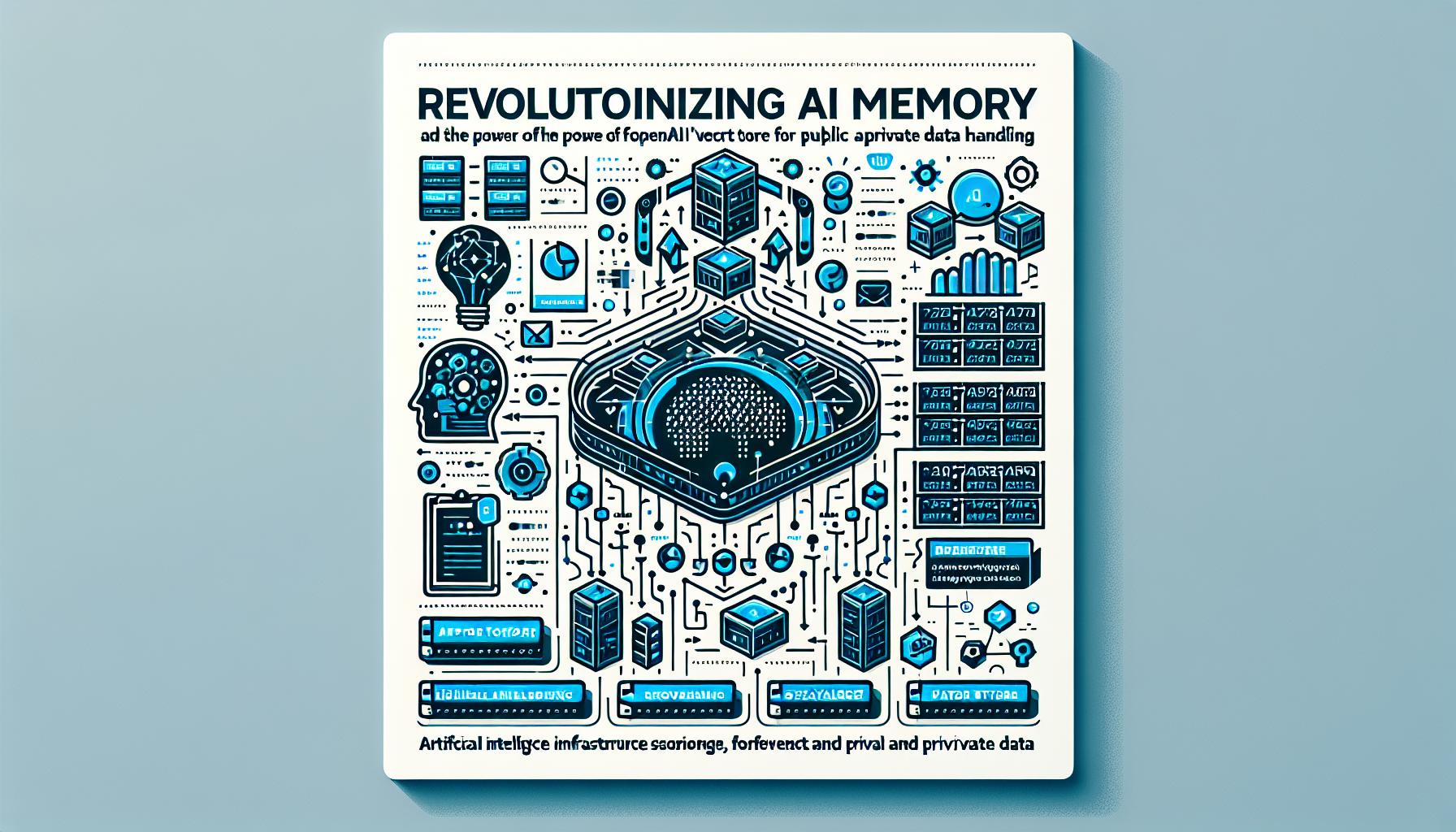Harnessing the Power of GPT-5: OpenAI's Leap into the Future with RAIA's Support

Introduction
In a groundbreaking announcement, OpenAI CEO Sam Altman has suggested that the upcoming GPT-5 will function like a 'virtual brain,' promising deeper thinking capabilities compared to its predecessors. This development has sent ripples through the technology sector, as businesses and developers eagerly anticipate the advanced cognitive functions that GPT-5 will bring to the table.
A Leap in A.I. Capabilities
GPT-5 is anticipated to be a significant leap forward, positioning itself as smarter and more efficient than the 'mildly embarrassing at best' GPT-4. According to Altman, this next-generation A.I. model is expected to handle complex tasks more effectively, thanks to its advanced cognitive functions that mimic deeper thinking processes.
Key Points:
- Deeper Thinking Capabilities: GPT-5 is designed to possess more profound reasoning skills, allowing it to manage intricate and layered tasks better than its predecessors.
- A Unique Title: Altman hinted that GPT-5 might be launched under a different, yet special, name to reflect its unique capabilities.
The Evolution of GPT Models
Over the past few months, reports have praised the capabilities of the GPT-5 model, suggesting it will be 'materially better' than GPT-4. This is a significant claim, as GPT-4 itself introduced notable advancements in reasoning capabilities across audio, vision, and text in real time.
Example of Progress: The new flagship GPT-4o model demonstrated remarkable proficiency in coding, suggesting a future where A.I. could make certain career paths more challenging for humans due to its high level of competence.
Strategic Developments
Altman revealed that OpenAI is exploring different models and ways to market them, which indicates that GPT-5 could come with various tailored versions suited to specific purposes. This could mean enhanced personalization and efficiency for users without them needing to understand the intricate differences between models.
Strategic Partnerships: OpenAI has benefited immensely from its collaborations with tech giants like Microsoft. These partnerships have bolstered OpenAI's capabilities and market reach, reaffirming OpenAI's position as a leader in A.I. innovation.
GPT-5: Functioning as a Virtual Brain
The concept of GPT-5 operating like a 'virtual brain' suggests several improvements:
- Better, Faster, More Efficient: Compared to former models, GPT-5 aims to be more adept at processing and generating responses that require a deeper understanding and contextual awareness.
- Enhanced Cognitive Abilities: This model is expected to better interpret and engage in complex conversations, solving multifaceted problems more effectively.
Industry Impacts
The implications of GPT-5 are vast, with potential applications across various sectors. AI's deeper thinking capabilities could revolutionize fields such as customer service, education, healthcare, and more, providing more nuanced and sophisticated interactions.
Leveraging RAIA to Harness OpenAI Innovations
Businesses looking to leverage these advancements can turn to RAIA's platform. RAIA allows companies to seamlessly integrate cutting-edge A.I. technologies by providing a robust environment for training, testing, and deploying A.I. models like GPT-4 and GPT-5.
RAIA's Key Features
- Training and Testing Environment:
- Sandbox Testing: RAIA offers a secure sandbox for training and testing A.I. models, ensuring businesses can develop and refine their A.I. solutions without risking live operations.
- Iterative Development: This enables iterative improvement of A.I. models, ensuring they are robust and reliable before full-scale deployment.
- Empowering Business Users:
- User-Friendly Interface: RAIA's platform is designed to empower business users to integrate and utilize A.I. without needing extensive technical knowledge.
- Automation Tools: RAIA provides tools that help automate business processes efficiently, leveraging the advanced capabilities of A.I. models.
- Comprehensive Metrics and Monitoring:
- Analytical Tools: The platform includes sophisticated tools for monitoring A.I. performance and user interactions, enabling continuous optimization.
- Feedback Integration: RAIA supports the integration of user feedback for ongoing model refinement.
- Ethical Deployment:
- Compliance and Privacy: RAIA ensures A.I. deployment adheres to ethical standards and privacy regulations, safeguarding user trust and data security.
Conclusion
Successfully deploying an A.I. assistant entails meticulous planning, data preparation, model fine-tuning, and ongoing optimization. By leveraging OpenAI's advanced models and RAIA's comprehensive platform, businesses can develop highly effective A.I. assistants that improve productivity and efficiency. RAIA's integrated approach—providing tools for building, training, and testing A.I. in a controlled environment—ensures reliable deployment, driving greater innovation and value in the business world.
Following these best practices, organizations can ensure their A.I. training processes are grounded in best practices, paving the way for successful A.I. integration and sustainable business transformation. With RAIA's support, businesses can confidently harness the power of OpenAI's latest innovations to achieve superior outcomes.


